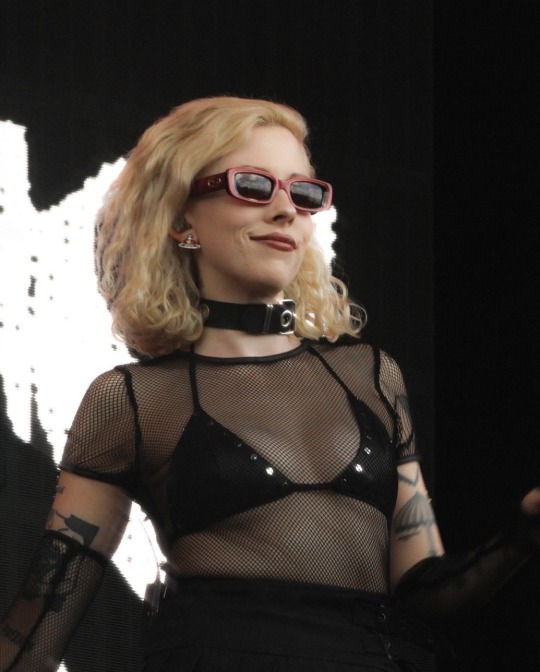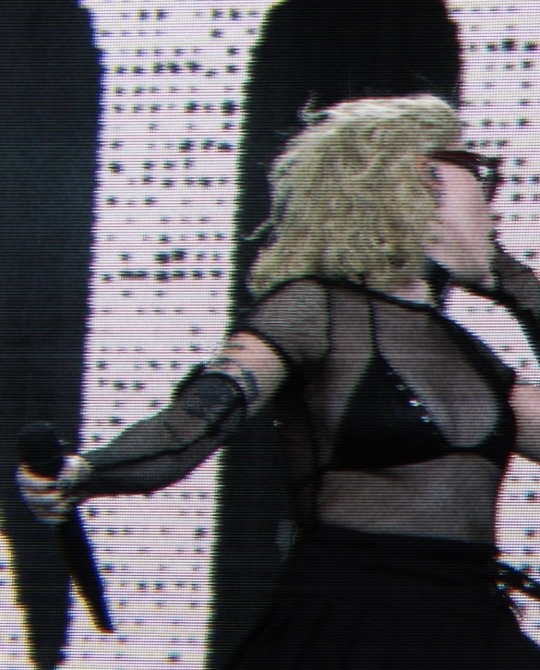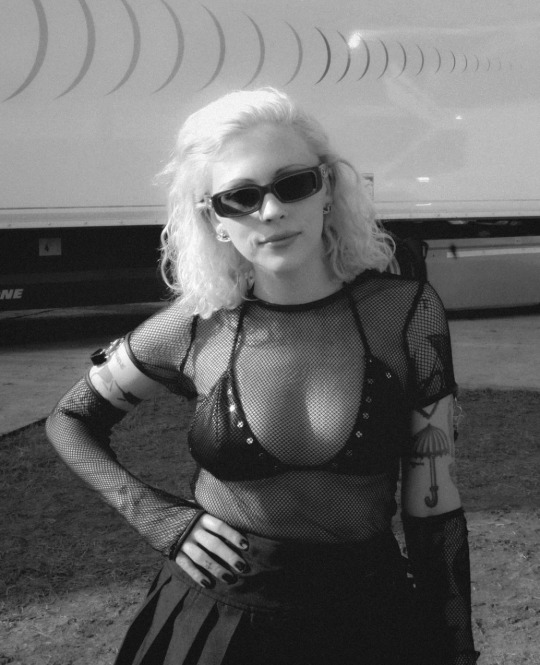#McGlinchey
Explore tagged Tumblr posts
Text
Buy Binance Verified Account
Buy Binance Verified Account Buy Verified Binance Account. What you may get: e mail password from Binance / Bittrex / Poloniex; electronic mail password from e-mail; scan of files; proxy
When you request, you'll get any of the records. On the off chance which you 3 Accounts, Place 3 requests:
!!! NOTE: when you register there for the first time you ought to input an SMS code. So be organized to get in touch with me for an SMS code! At that factor, you can exchange that smartphone # to yours or empower 2FA. If you don’t have a clue how to utilize it, don’t get it. On the off hazard that you have an issue all through the primary run-through login and I can’t fix it, You can have the full cut price or substitution of the request upon your solicitation Other than the above situation there could be no discounts given.
Help in destiny Account Unlocking We not simply promoting tested debts, we PROVIDE SUPPORT in account unlocking if it takes place. If your account is frozen, PM us in telegram and we are able to help you with extra photos, video, and additional face verification.
Yes, it’s viable because we've got contacts with those who registered there and we will convince them that will help you.
What if someone will attempt to get my account lower back via the support using ID? First of all, there may be no chance that someone would attain out to support due to the fact they don’t even understand there may be an account registered to their call.
Buy-Verified-Bianace-Accoun
Secondly, totally passport ID statistics isn’t sufficient to get better an account, and there may be no manner that assist can clearly affirm the identification of a user but to consider that they are the account holder as long as they provide right information and act like it.
For that motive, support may also request such data as the ultimate IP addresses used for login, and the last opened/closed trading offers. Only the purchaser has all that information, so he could be presumed to be the criminal proprietor of the account. This is why you can be assured that you will be capable of keep the account to your self best.

#JimmyG#49ers#Hargrave#Drake#Broncos#Niners#MikeWhite#McGlinchey#Sutton#Ekeler#Steelers#FlyEaglesFly#Stidham#JasonKelce#NFLFreeAgency#McDaniels#Jeudy#TJEdwards#Armstead#CalaisCampbell#MondayMotivation#FTTB#Bosa#NakobeDean#BenPowers#SwiftCity#Chargers#SeanPayton#NickGates#Cardigan
1 note
·
View note
Photo

37 notes
·
View notes
Text
0 notes
Text




"ROCK MOVES"
with Julie Reynolds
TUES 2PM & WED 7PM
This Week:
The Screaming Jets new album "Professional Misconduct" is out and doing great on the charts!
The album’s supporting tour has kicked off too. Sounds great right?
Well, having just lost their Bass Player Paul Woseen before the album was released, they've been doing it tough.
Cam McGlinchey, drummer for the band joins us on the show to tell how they're doing, how they're touring and who is lending them a helping hand.
Join Us!
"ROCK MOVES"
with Julie Reynolds
TUES 2PM & WED 7PM
LISTEN LIVE @
WWW.SAROCK.COM.AU
#listenlive #adelaidemusicscene #adelaideradio #sarockradio #southaustraliaradio #supportlivemusic #australianmusic #radiostation #internetradio #rockmoves #musicinterview #juliereynolds #TheScreamingJets #CamMcGlinchey #PaulWoseen
https://www.sarock.com.au
#The Screaming Jets#sarockradio#radio#internet radio#interview#music#julie reynolds#Cam McGlinchey#rock moves
1 note
·
View note
Text
"Cloudthinker" by Andrew McGlinchey
Tomorrow’s Headlines in a Book for Today #books #bookreview #reading #readerviews
Cloudthinker Andrew McGlincheyIndependently Published (2023)ISBN: 979-8390660690Reviewed by Terri Stepek for Reader Views (09/2023) In the near future of “Cloudthinker,” the debut thriller by Andrew McGlinchey, Artificial Intelligence seemed like such a boon for humankind. No longer did people trudge to work to do the mundane tasks society requires. People were freed from these menial duties to…

View On WordPress
0 notes
Text
Palace Of The King Unveils High-Energy Rock Anthem 'Children Of The Evolution'
Australian rock and roll band Palace of the King is set to shake your foundations once again with the release of their electrifying new single, ‘Children of the Evolution‘. Fueled by relentless energy and a power, the band delivers an adrenaline-pumping rock anthem that will captivate fans and leave them craving for more. ‘Children of the Evolution‘ showcases the band’s signature sound, blending…

View On WordPress
#Anthony Licciardi#Cameron McGlinchey#Children of the Evolution#Leigh Maden#Palace Of The King#Ricki Rae#Sean Johnston#Seany Johnston#Tim Henwood
0 notes
Text
In The Jan 6 Killing Of Ashli Babbitt, A Double-Standard On Cop Misconduct
by Brian McGlinchey | Jan 6, 2025
Contrary to exaggerated, partisan rhetoric that frames the Jan 6, 2021 Capitol Hill riot as a “deadly insurrection,” the truth is that only one homicide occurred that day. The victim, an unarmed Trump supporter, was shot and killed by a police officer with a history of irresponsible handling of firearms, who opted against a nonlethal response to an act of trespassing, and who fired his weapon in the absence of any imminent threat of death or serious injury to himself or others in his vicinity.
US Capitol Police (USCP) Lieutenant Michael Byrd’s killing of Ashli Babbitt came just six months after George Floyd’s death under the knee of Minneapolis police officer Derek Chauvin, an incident that sparked outrage, widespread calls for police reform, and nationwide rioting. In the case of Babbitt’s killing, however, the collective reaction from the American left and major media at best amounted to an indifferent shrug. Worse, many reflexively heralded Byrd as a hero and viewed Babbitt as a deserving recipient of the bullet that perforated her trachea and lung.
The contrast illustrates how partisan framing short-circuits people’s ability to uniformly and objectively apply principles to the facts before them. Put another way, an intellectually honest person can reject Babbitt’s politics, condemn her unlawful conduct on Jan. 6 and rightly conclude that she was the victim of an unjustified police shooting.
21 notes
·
View notes
Text




Heather Baron Gracie of Pale Waves photographed by Fearghal McGlinchey
#heather baron gracie#pale waves#hbgedit#wlwedit#usergay#usermusic#usermusicdaily#dailymusicians#dailymusicqueens#blondessource#femalestunning#up
71 notes
·
View notes
Text

Edna O’Brien
Novelist who scandalised her native Ireland with The Country Girls, and explored the lives of women who love and suffer
Before Edna O’Brien, Irish female writers tended to come from the preserve of the “big house” or enjoyed the kind of privilege that made a life of writing possible. And by and large, their books dealt with genteel themes and conformed to recognisable genres and narrative forms.
When O’Brien’s first novel, The Country Girls, was published in 1960, all that changed. As her friend and peer Philip Roth remarked: “While Joyce, in Dubliners and A Portrait of the Artist, was the first Irish Catholic to make his experience and surroundings recognisable, ‘the world of Nora Barnacle’ had to wait for the fiction of Edna O’Brien.”
Written in exile in London, The Country Girls brought O’Brien, who has died aged 93, to international attention.
The reception in Ireland was largely hostile due to the book’s frank portrayal of female sexuality and desire. It was denounced as a “slur on Irish womanhood” and banned, as were several subsequent books. The notoriety established an enduring public persona – the glamorous and worldly, convent-educated libertine – which sometimes worked to the detriment of O’Brien’s reputation as a serious and committed writer. For decades, her name operated as a byword for transgression and subversion, particularly for women.
In addition to more than two dozen novels and short story collections, O’Brien produced numerous plays, a couple of memoirs, children’s books and a collection of poems. The largely first person, linear narratives of her early novels evolved into a consciously experimental style in the 1970s and 80s. A Pagan Place (1970) is written in the second person singular: Night (1972) is a single sustained monologue.
The debt to Joyce, whom O’Brien revered and was able to quote at length from memory, was obvious. Like Joyce, she understood how the cadences, rhythms and syntax of English as it is spoken in Ireland could be used to liberate narrative from its empirical impulse and, among other things, give voice to female subjectivity. But her themes were entirely her own.
In 1983, the writer and journalist Nuala O’Faolain wrote: “Edna O’Brien is not a writer within a conscious literature. She owes nothing to any predecessor or to any tradition. She is a writer with one theme, women who love and suffer.”
From the 90s onwards, O’Brien consciously expanded her range in a quartet of books that dealt with the massive social, political and economic changes that were sweeping through Ireland, themes largely ignored by other Irish writers.
The first of these, House of Splendid Isolation (1994), dealt with the Troubles via the relationship between a fugitive Republican, McGreevy (based on the Republican paramilitary Dominic McGlinchey, whom she interviewed at Portlaoise prison), and an elderly woman, Josie, whom he takes hostage. In the same year, she interviewed Gerry Adams for the New York Times and in 1995 published an open letter in the Independent calling on the then leader of the Labour party, Tony Blair, to open up a dialogue with Republicans.
In Ireland and England, O’Brien’s involvement in political activity and her perceived sympathy for the Republican movement led to widespread criticism – in the Guardian she was described by Edward Pearce as “the Barbara Cartland of long-distance republicanism”. By insisting that dialogue is the necessary first step of any conflict resolution, O’Brien did no more than anticipate the zeitgeist.
In subsequent books, O’Brien fictionalised divisive events that an increasingly prosperous Ireland would sooner have ignored. The real story of a 14-year-old rape victim who had been stopped, by law, from leaving Ireland for an abortion became Down By the River (1996). Generally speaking, these books were poorly reviewed in the UK and Ireland. Many of O’Brien’s severest critics were the same people who found her intervention in politics offensive and she was routinely accused of being out of touch with modern Ireland.
Her 2002 book, In the Forest, was based on a notorious triple murder in County Clare. O’Brien’s fictional killer, O’Kane, descends into madness and violence via a life of exclusion and abuse. Writing about the novel in the Irish Times, Fintan O’Toole painted the actual events as beyond human comprehension while at the same time excoriating O’Brien: “...(the events) did not and do not have a public meaning... there is simply no artistic need for so close an intrusion into other people’s grief.”
There is an irony here: the Ireland that had been scandalised by the antics of Baba and Kate in The Country Girls was still unable to confront the ugly underbelly of a society in which poverty, the degradation of women, violence and routine abuse had been endemic for decades.
There is an urgent, heightened quality to these books – their narratives strain as they shuttle back and forth across space and time. Chapters are routinely no more than two pages long, staccato dialogue sits cheek by jowl with descriptive passages of extraordinary vividness and terseness. Reviewing O’Brien’s The Little Red Chairs (2016) in the New Yorker, James Wood described her late style as one that “mixes and reinvents inherited forms, blithely shifts from third-person to first-person narration, reproduces dreams and dramatic monologues”.
O’Brien put this style to great use in her biography of James Joyce (1999). It is still by far the best short introduction to the writer, his works and life. Such was O’Brien’s ability to weave her own words in and around those of Joyce that when the manuscript was submitted to the prickly Joyce estate for approval no changes or deletions were requested.
The daughter of Lena (nee Cleary) and Michael O’Brien, Edna was born in the village of Tuamgraney, County Clare, into a newly independent Ireland where church and state conspired to control all aspects of women’s lives and bodies. Her family had the trappings of wealth – they lived in a large house with a gate lodge, kept horses and employed farm workers – but money was scarce.
Her father’s unsuccessful horse breeding, gambling and alcoholism maintained a constant level of tension in the house, which often erupted into violence. Her mother’s love for her bordered on the obsessional – Edna was the youngest by five years of four children. Decades later, Lena’s frequent letters to her exiled daughter in London, many of which admonished Edna for her writing and lifestyle, ended with the hope that they would be buried together.
O’Brien claimed that the only books in her childhood home were bloodstock manuals and the Bible, and she often made reference to her mother’s visceral fear of writing. Her turbulent childhood remained a constant touchstone in her fiction, as did the landscape of County Clare. She was educated at the Convent of Mercy in Loughrea, where she excelled at the sciences – her English teacher found her assignments “too exuberant” – and she enrolled in a pharmaceutical college in Dublin, working part-time in a chemist shop.
She met the Irish-Czech writer Ernest Gébler, eloped with him and subsequently married him, against her parents’ wishes, in the summer of 1954. In 1960, the couple and their two sons, Carlo and Sasha, moved to London, where O’Brien was engaged by the publishers Hutchinson to undertake manuscript reports. Iain Hamilton, who ran Hutchinson, was sufficiently impressed with her efforts that he and Blanche Knopf advanced £25 each to get her to write a novel. The Country Girls was written in three weeks.
O’Brien’s success led to strain on her marriage with Gébler and it broke down in 1966. As with her childhood, it provided a rich seam for her writing. She engaged in a successful three-year custody battle for her sons – she had walked out in the middle of cooking dinner one evening – and this included making an undertaking before a court that she would never let her sons see her 1965 novel, August Is a Wicked Month. The acrimony with Gébler continued – he claimed that he had largely written her early books.
Not since Oscar Wilde had an Irish émigré in London lived such a flamboyant life. O’Brien moved in an international celebrity set and spent extended periods in the US, where she enjoyed a large following. Her friends included Jane Fonda, Jackie Kennedy, Samuel Beckett, Mick Jagger, Francis Bacon, Ted Hughes, Princess Margaret, Ian McKellen and Harold Pinter. In 1972, she was described in the Longford report on pornography as a “purveyor of insidiously pornographic and perverted views on sex”. She took LSD with RD Laing, a disastrous experiment that unhinged her mind for a year. She was a regular at the White House St Patrick’s Day party, and posed for Bill Brandt and David Hockney.
Although O’Brien’s professional career coincided with feminism, she had an awkward relationship with the movement. Her independence provided an early example for those seeking greater equality with men, but many were uncomfortable with the concentration on love in her early books and the fact that many of her female characters could be characterised as victims.
O’Brien was routinely referred to as “the Irish Colette”. It was difficult to square a statement such as “I am obsessed by love, by the need of it and the near impossibility of it …” with the impulse in early feminism for independence and activism. But, while O’Brien’s female protagonists might not provide ready standard-bearers, that was never really her project.
The fine short story The Love Object (1968) perhaps offers a deeper insight into her real motivation. An impassioned affair between a television announcer, Martha, and a “famous”, happily married, lawyer ends badly and Martha reaches suicidal depths. As she slowly, gradually recovers from the affair she finds herself falling in love with the memory of the lover more deeply than ever she had been while he was available to her. The story ends with these lines: “I suppose you wonder why I torment myself like this with details of his presence but I need it, I cannot let go of him now, because if I did, all our happiness and my subsequent pain – I cannot vouch for his – will all have been nothing, and nothing is a dreadful thing to hang on to.” More Proust than Colette.
Casual sexism is commonplace in writing about female writers and O’Brien suffered more than most in this regard. Profiles and reviews of her books concentrated on her looks, her poetic manner of speaking, her accent, speculation about lovers, often at the expense of her writing.
It is hard to imagine Seamus Heaney, John Banville or Colm Tóibín being written about in this way. As she wryly commented: “It’s assumed that in order to be a serious writer, you have to look like the back of a bus.” Because she was regarded as a scandalous woman, it was assumed that all of her female characters were thinly disguised autobiography.
This charge simultaneously relegates autobiographical writing to a secondary category and implies that women’s experience is unworthy of “serious” literature. O’Brien is on record as saying: “Whether a novel is autobiographical or not does not matter. What is important is the truth in it and the way that truth is expressed.”
Although the final decade of O’Brien’s life was marred with ill-health, she continued to write. At the same time, the critical response to her work (and appreciation of her career) underwent a significant shift. It is perhaps ironic that the wholly positive reception of writers such as Eimear McBride, Anne Enright and Anna Burns, all of whom owe a significant debt to O’Brien, created an atmosphere in which the older writer could be reassessed. In Ireland, she was given the title Saoi, the highest honour of the Aosdána, in 2015. In 2018 she was made an honorary dame and in 2021 a commander of the French Ordre des Arts et des Lettres.
Her late novels continued to explore familiar territory – the control of women and their bodies, the treacherous and all pervasive workings of patriarchy, the impossibility of love, the violation of innocence, exile and abandonment – but with a renewed vigour and urgency.
She was drawn to ever more horrific material, and the writing style became sparer and sharper. Reviewing Girl (2019), O’Brien’s reimagining of the 276 schoolgirls kidnapped by Boko Haram jihadists in 2014, in the Guardian, Alex Clark wrote, “There is the blend of economy and lyricism, vignettes tumbling over one another to disorient and energise the reader. There is the intense focus on the emotional lives of women on the sharp end of mental and physical incarceration or constraint, broadening out to sketch in the patriarchal and theocratic structures that hold them there.”
The theme of exile is as old as writing itself. For many Irish writers, it seems to be a prerequisite but for O’Brien it had a particularity that transcended her physical separation from Ireland. From an early age, she perceived her own femininity as a form of exile. She fervently believed that true art could only be produced out of pain, rupture and displacement.
In 1976, in her semi-autobiographical Mother Ireland, she wrote: “I live out of Ireland because something in me warns me that I might stop if I lived there, that I might cease to feel what it has meant to have such a heritage, might grow placid when in fact I want yet again and for indefinable reasons to trace that same route, that trenchant childhood route, in the hope of finding some clue that will, or would, or could, make possible the leap that would restore one to one’s original place and state of consciousness, to the radical innocence of the moment just before birth.”
O’Brien is survived by her sons.
🔔 Josephine Edna O’Brien, writer, born 15 December 1930; died 27 July 2024
Daily inspiration. Discover more photos at Just for Books…?
12 notes
·
View notes
Text
Books I want to read in 2024
I was inspired by @fluencylevelfrench to write this post, so here are the 50 books I want to read in 2024, which is my provisional Goodreads goal. (I always set a lowish number and adjust it throughout the year depending on how my goal progresses.) Last year, I read 121 books, so I'm hoping to be able to read at least 100, but I have no idea what my year is going to look like.
1Q84 Book 1 by Haruki Murakami (currently reading)
1Q84 Book 2 by Haruki Murakami
1Q84 Book 3 by Haruki Murakami
Hamburg – hin und zurück by Felix & Theo
Stargirl by Jerry Spinelli
Die Verwandlung by Franz Kafka
Words and Rules: The Ingredients of Language by Steven Pinker
Love, Stargirl by Jerry Spinelli
International Relations Theory by Stephen McGlinchey
You Are What You Speak: Grammar Grouches, Language Laws and the Power of Words by Robert Lane Greene
Freakonomics: A Rogue Economist Explores the Hidden Side of Everything by Steven D. Levitt
Meditations on Diplomacy: Comparative Cases in Diplomatic Practice and Foreign Policy by Stephen Chan
Nickel and Dimed by Barbara Ehrenreich
Reflections on the Posthuman in International Relations: The Anthropocene, Security and Ecology by Clara Eroukhmanoff
In Cold Blood: A True Account of Multiple Murder and Its Consequences by Truman Capote
Haus ohne Hoffnung by Felix & Theo
Effi Briest by Theodor Fontane
Into Thin Air: A Personal Account of the Mount Everest Disaster by Jon Krakauer
Migration and the Ukraine Crisis: A Two-Country Perspective by Agnieszka Pikulicka-Wilczewska and Greta Uehling (eds.)
Writing Systems: An Introduction to Their Linguistic Analysis by Florian Coulmas
Nations under God: The Geopolitics of Faith in the Twenty-First Century by Luke M. Herrington
The Tipping Point: How Little Things Can Make a Big Difference by Malcolm Gladwell
Herr der Diebe by Cornelia Funke
Fast Food Nation: The Dark Side of the All-American Meal by Eric Schlosser
Park Statue Politics: World War II Comfort Women Memorials in the United States by Thomas J. Ward
The Sun Is Also a Star by Nicola Yoon
Restoring Indigenous Self-Determination: Theoretical and Practical Approaches by Marc Woons
Veronikas Geheimnis by Friedhelm Strack
The Sacred and the Sovereign by Özgür Taşkaya
1984 by George Orwell
Sounds of War: Aesthetics, Emotions and Chechnya by Susanna Hast
The Hitchhiker's Guide to the Galaxy by Douglas Adams
Feminists Don't Wear Pink (And Other Lies): Amazing Women on What the F-Word Means to Them by Scarlett Curtis
Into the Eleventh Hour: R2P, Syria and Humanitarianism in Crisis by Robert W. Murray
The Restaurant at the End of the Universe by Douglas Adams
Men Explain Things to Me by Rebecca Solnit
Life, the Universe and Everything by Douglas Adams
Women & Power: A Manifesto by Mary Beard
So Long, and Thanks for All the Fish by Douglas Adams
The Sources of Russia's Great Power Politics: Ukraine and the Challenge to the European Order by Taras Kuzio
Mostly Harmless by Douglas Adams
Women, Race & Class by Angela Y. Davis
Feminism without Borders: Decolonizing Theory, Practicing Solidarity by Chandra Talpade Mohanty
I'll Give You the Sun by Jandy Nelson
The “Clash of Civilizations” 25 Years On: A Multidisciplinary Appraisal by Davide Orsi
Making Space for Indigenous Feminism by Joyce Green
It's Kind of a Funny Story by Ned Vizzini
We Were Liars by E. Lockhart
Hood Feminism: Notes from the Women That a Movement Forgot by Mikki Kendall
Simon vs. the Homo Sapiens Agenda by Becky Albertalli
11 notes
·
View notes
Note
Hello Keith - just thought I say hello. It gonna sound funny but my late Dad’s photo of the Schooner Olivia Brown (out of Gloucester Mass) was printed next to your story of An Appreciation of the Brooklyn Bridge in “Sea History” summer 1983. My story about the boat is towards the back. Since then other related stories have come full circle. It’s amazing ... your watercolor is absolutely wonderful. Bob McGlinchey
Hi Bob- Thanks for your kind comment about my watercolor.
I had forgotten about the article in Sea History- such a long time ago!
I must find my copy and check out your story about your Dad's schooner....
4 notes
·
View notes
Text
We like to say we drank him under the table' - Owner remembers Shane MacGowan's visit to Philadelphia Irish pub
A favorite bartender now bar owner from a previous almost unrecognizable life of mine remembers Shane MacGowan.
“Fergie” was my guy at McGlinchey’s, a bar for art students, problem drinkers, and cheapskates in search of a properly drawn Guinness and a good jukebox. You stepped over the hobos on the sidewalk to enter. It had...atmosphere.
Fergie always had a smile and perfect Guinness for me, even after one of occasional months long drying out absences. He was, and is, grand.
7 notes
·
View notes
Note
Three songs: 13, 14, 15 (am I Uno Reverso-ing you? A little XD)
“the three songs” ask set
13. three songs you want at your funeral I'm going to assume that at whatever stage I plan for this, I'll always be a dramatic bitch. 1. One WInged Angel - either Remake version (because that is intense) or Advent Children version (because I love that version and there will be exactly 2 people there that know it and not be surprised) 2. The Nazgul - from Fellowship of the Ring (I just love that it sounds ominous like you lot think just because I'm gone I'm no longer a problem - think again) 3. Hide and Seek by Lizz Robinett (but a really creepy version because I am nothing if not a chaos gremlin)
14. three songs you want at your wedding This one was easy, I've just gone for the softest love songs I can find for different points during the wedding.
1. How can a moment last forever? - Celine Dion 2. The story - Brandi Carlisle 3. Love you 'till the end - Niamh McGlinchey
15. three songs you want to dance with your love to
This one is a lot harder than I thought it might be.
Like what's the occasion? What's the type of dancing? Where are we when we are dancing? Like I could pull up a list of more classical songs for that type of dancing, or more kpoppy songs that are good for a bit of raving, or the 80s/90s hits that are more typical for a party...
This question leads to more questions than answers.
2 notes
·
View notes
Text
“i’ve got a better body than i had at twenty” (after maddie mcglinchey)
because at twenty, i wasn’t a body / i was a skeleton / survival mode was all i knew / strep throat in the summer was all i knew / layering for warmth instead of fashion was all i knew / i know so much more now / like not to fear the ways in which my body has changed and will change / change means growth, and i have spent much too long making myself small / it’s time to bloom / i know so much more now / like that everything about my disorder started in my head / so now i let it out / i talk about it / i write about it / i cry about it / i release the feelings that made me restrict instead of letting them coerce me into a body i no longer fit into / i know so much more now / like i will never fit into the body i had at twenty / because that body was barely alive / and now i am living / i’ve got a better body than i had at twenty / because i have a body now
(cc, 23)
#my writing#neda week#ed recovery#prose#poetry#poets of tumblr#poets on tumblr#words#writing#writers on tumblr#writerscreed
15 notes
·
View notes
Text
Tamworth 0 - 3 Tottenham
Tottenham were relieved after needing extra time to beat non-league Tamworth 3-0 in the third round of the FA Cup. The final scoreline flattered Spurs, who worked throughout the first 90 minutes and could have conceded deep into stoppage time when Tom McGlinchey and Jordan Cullinane-Liburd both went close to scripting one of the competition's greatest fairytales. In the end, the Lambs were undone…
0 notes